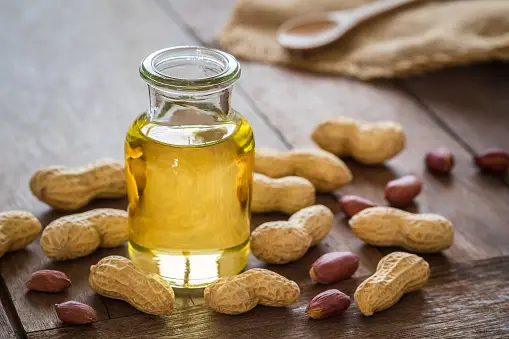For ages, peanut oil has been a common cooking medium in homes all around the world. It is a favorite of both home cooks and chefs because of its high smoke point and mild, nutty taste. This post will examine the various aspects of peanut oil, including its affordability and culinary applications, with an emphasis on the price of peanut oil and how it affects your pocketbook.
The Nut-Free Magic Bullet of Cooking
For thousands of years, people have utilized peanut oil, also referred to as groundnut oil, in their cuisine. Originating in South America, it eventually made its way to Asia and Africa, where it was incorporated into regional dishes. Nowadays, peanut oil is widely used around the world because of its mild flavor, which complements a variety of foods.
The Essence of Asian Cooking
A staple of Asian cuisine is peanut oil. It is ideal for stir-frying, deep-frying, and sautéing because of its high smoke point, which keeps it from degrading at high temperatures. The secret to getting that real, delicious flavor in recipes like Pad Thai or General Tso’s chicken is this adaptable oil.
Delicate and tasty
The mild taste of peanut goes well with a range of foods. It brings out the inherent flavor of the components without overpowering them. Peanut will satisfy your taste buds, whether you’re frying some crispy chicken or preparing a stir-fry.
The price of peanut oil is an economical option.
One important consideration when it comes to cooking oils is price. Peanut is a very affordable choice. When compared to other cooking oils, oil is frequently more affordable, which draws in customers on a budget.
Competitive Costs
The price of peanut oil is competitive due in part to the large supply of peanuts. Due to their widespread cultivation, peanuts are consistently available for use in the manufacturing of oil. This excess supply controls prices, which is advantageous to both customers and foodservice businesses.
An Excellent Investment
Peanut oil is the best option if you’re seeking a cheap cooking oil without sacrificing quality. The advantages of premium oil may be had without going over budget. Its affordability guarantees that your culinary pursuits will yield greater value for your money.
Using Peanut Oil in Cooking
The adaptability of peanut oil is a big plus for anyone who enjoys experimenting in the kitchen. It may be used in a variety of culinary processes, such as roasting, baking, and frying. It is a favorite of both amateur cooks and professional chefs because of its versatility in the kitchen.
Frying Made Simple
For lovers of deep-frying, peanut is heaven-sent. It is heat-resistant and won’t degrade or release offensive scents because of its high smoke point. This guarantees that the things you fry will be crispy and golden brown while preserving their original tastes.
A Well-Being Option
Another benefit of peanut oil is that it is heart-healthy. It is a healthier alternative for individuals who are mindful of their dietary choices because it is lower in cholesterol and saturated fat. Selecting peanut over other oils with a high saturated fat content can aid in keeping a diet in balance.
The Cost of Peanut Oil and Your Budget
In the fast-paced world of today, it’s critical to monitor your spending. The low cost of peanut oil benefits both consumers and food companies. You can make delectable meals that rival those seen in restaurants without breaking the bank thanks to the affordable price of peanut.
An Affordable Substitute
Make the move to peanut oil if you’re seeking cost-effective meal ideas without compromising on quality. Peanut is an inexpensive substitute for other cooking oils for frying and sautéing food without sacrificing flavor.
An Ecological Decision
Peanut oil is not only inexpensive but also beneficial to the environment. Sustainable agricultural methods, such as ethical sourcing and responsible farming, are widely used by oil manufacturers. You may match your culinary preferences with environmentally conscious ideals by using peanut oil.
Minimizing food waste
Food waste can be decreased by using oil because of its extended shelf life and high smoke point. Cooking oil may be recycled several times, which minimizes waste and lessens its environmental effect when used for frying.
Peanut Oil in the Culinary Sector
The cost of peanut also benefits catering and restaurant businesses. It enables them to keep their food at a constant quality without raising their operational expenses.
An Enhancer of Flavor
Chefs in Asian and Western cuisines alike love oil’s mild, nutty taste. It is a flexible cooking medium that improves the flavor of food on a wide variety of menus.
Astute cost control
Cost control is essential for commercial kitchens. Given its affordability and adaptability, oil offers a great way to continue turning a profit while producing delicious food.
In summary
Not only is peanut a priceless culinary tool, but it’s also a very adaptable culinary treasure. Its affordable pricing for peanut makes it a desirable choice for people who want to savor the pleasures of home-cooked or restaurant-caliber meals on a balanced budget. So, to enjoy the flavor and the savings, think about adding oil to your cooking arsenal, whether you’re roasting, sautéing, or frying.


